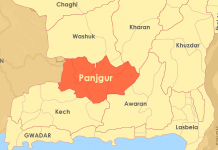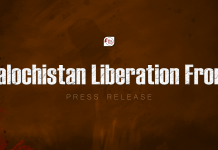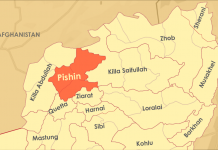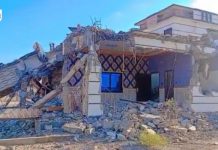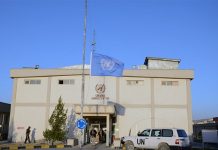Political, nationalist, and religious parties in Balochistan continue their protests against alleged election rigging, including delayed announcements of winners and changing of results. The protests, jointly organized by the Balochistan National Party Mengal (BNP-Mengal), the National Party (NP), Pakhtunkhwa Milli Awami Party (PkMAP), and the Hazara Democratic Party (HDP), have blocked several key highways, effectively disrupting the movement of goods and people.
The protests began in the aftermath of the February 8 general elections, where the majority of the former cabinet members of the Balochistan government and members of the Balochistan Assembly lost their seats. These parties and candidates claimed that the Pakistani military and intelligence agencies had “selected” their favorite candidates for the posts, ignoring the public mandate. They also claimed that the Pakistani forces were “bribed” into rigging elections in favor of some candidates via fake votes.
As the results of the elections were announced, the BNP-Mengal, PkMAP, HDP, and NP, among other religious parties, lost their seats. Mainstream political parties of Pakistan, like the Pakistan Muslim League Nawaz (PML-N) and the Pakistan Peoples Party (PPP), were declared winners overnight. The nationalist political parties of Balochistan attributed the surprising results to election rigging by the Election Commission of Pakistan (ECP), encouraged and supported by the military establishment of Pakistan.
According to the Election Commission of Pakistan’s results for the seats of provincial and national assemblies in Balochistan, the PPP secured 11 seats, the JUI-F also won 11 seats, the PML-N gained 8 seats, while other parties and independent candidates each managed to win one or two seats.
The election day in Balochistan was chaotic, with irregularities reported from several polling stations, such as a delayed start to the voting, the absence of ECP personnel, and protests from the local populations against the elections. Furthermore, armed groups also carried out several attacks on polling stations and other election-related activities, leading to the suspension or premature end of voting in several areas. The electoral turnout in Balochistan was significantly low compared to all the previous elections, as several hundred thousand potential voters did not cast their votes due to personal preference, security threats, and urging from Baloch “pro-independence” and non-political nationalist circles.











